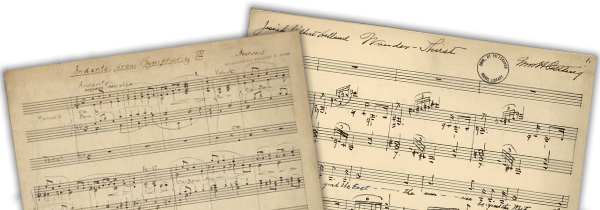
Born in the Pittsburgh neighborhood of Squirrel Hill, Robert Watson Schmertz (1898–1975) was an architect and folk musician. He attended Peabody High School and Carnegie Tech (now Carnegie Mellon University), where he studied architecture. After graduation, Schmertz became a professor in the School of Architecture at Carnegie Tech and operated a successful private practice.
Although music was not his main occupation, several of Schmertz’s songs entered the folk repertory. Pete Seeger recorded his “Monongahela Sal” on his album Story Songs. He played “Sal” and other Schmertz compositions all around America, always crediting the songwriter. Burl Ives, Tennessee Ernie Ford, the Statler Brothers, and Gary Crosby each recorded versions of “Noah Found Grace in the Eyes of the Lord.” Ives was a particular fan, recording Schmertz’s “Angus MacFergus MacTavish Dundee,” “The Lock Tenders Lament,” and “Quack Quack Paddle-Oh.” Schmertz also collaborated with Chatham College’s Viv Richman, who recorded Vivien Richman Sings Folk Songs of Western Pennsylvania, a Smithsonian Folkways release in 1959. He also recorded several albums of his own and authored A Picture Book of Songs and Ballads.
The Robert Schmertz Collection is composed of instruments, posters, programs, music manuscripts, published scores, songbooks, and sound recordings related to Schmertz’s musical activities.